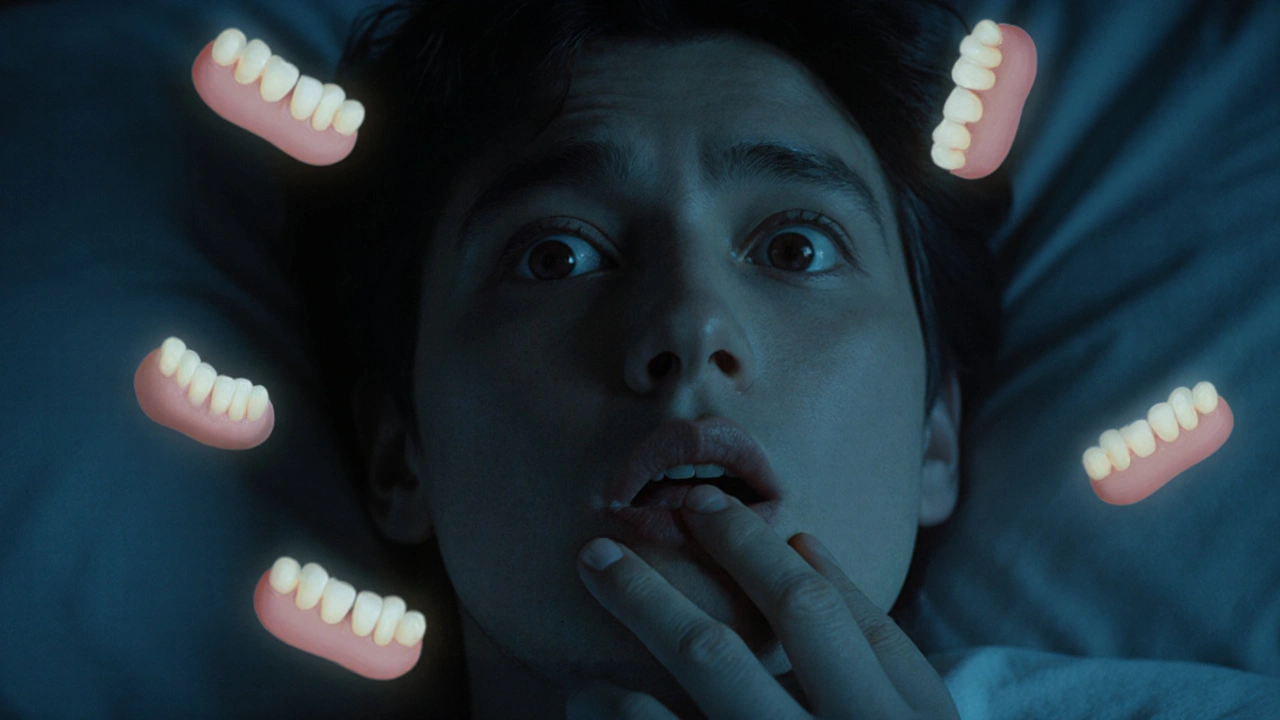Vypadávání zubů ve snu: Proč se to děje a co s tím dělat
When you wake up feeling like a tooth might be loose—or worse, gone—it’s not just scary, it’s a red flag. vypadávání zubů ve snu, příznak, který často souvisí s bruxismem, zubním kamenem nebo ztrátou podpory dásní. Also known as noční ztráta zubů, it rarely happens without an underlying cause like excessive grinding, advanced gum disease, or a weakened tooth structure from past trauma or root canal treatment. This isn’t just about discomfort—it’s about your long-term dental health.
Most people who experience this don’t actually lose a tooth while sleeping. Instead, they wake up with a loose tooth that was already compromised. The real culprit is often bruxismus, nepříjemný zvyk škrábat nebo stiskovat zuby během spánku. This puts extreme pressure on teeth and their supporting structures, making already weak teeth more likely to loosen or even fall out overnight. Many don’t even know they grind their teeth until a dentist notices wear patterns or they report waking up with jaw pain. If you’ve noticed your teeth feel sensitive in the morning, or your partner says you grind your teeth, this could be the link.
Another common cause is zubní kámen, tvrdý nános bakterií, který se hromadí pod dásněmi a ničí kost, která drží zuby na místě. Over time, this leads to periodontitis—gum disease that eats away at the bone. When the bone is gone, teeth lose their foundation. A tooth that’s been loose for months might finally give way during sleep, especially if you’ve been clenching or shifting position. It’s not the snoring that pulled it out—it’s the years of untreated buildup. And if you’ve had a root canal or a large filling, that tooth might be more fragile than you think. Even a small crack can turn into a full break under pressure.
Some people confuse this with citlivost zubů, pocit bolesti při jídle nebo nápojích, který může být předzvěstí ztráty zubu. But sensitivity alone won’t make a tooth fall out. It’s the combination of sensitivity, gum recession, and pressure that creates the perfect storm. If your teeth feel wobbly when you brush or bite down, don’t wait. That’s not normal aging—it’s a warning. And if you’re wearing a zubní protéza, náhrada, která může zatěžovat zbývající zuby, pokud není správně vyvážená, make sure it fits right. A poorly fitting denture can shift during sleep and put uneven force on your natural teeth, accelerating their decline.
What you’ll find in the articles below isn’t just theory—it’s real solutions. From how to spot early signs of bruxism to what really happens when gum disease eats away at your bone, we cover what works. You’ll learn how to protect your teeth before they loosen, how to tell if a wobbly tooth can be saved, and what steps to take if you’ve already lost one. No fluff. No scare tactics. Just clear, practical advice based on what dentists see every day.
